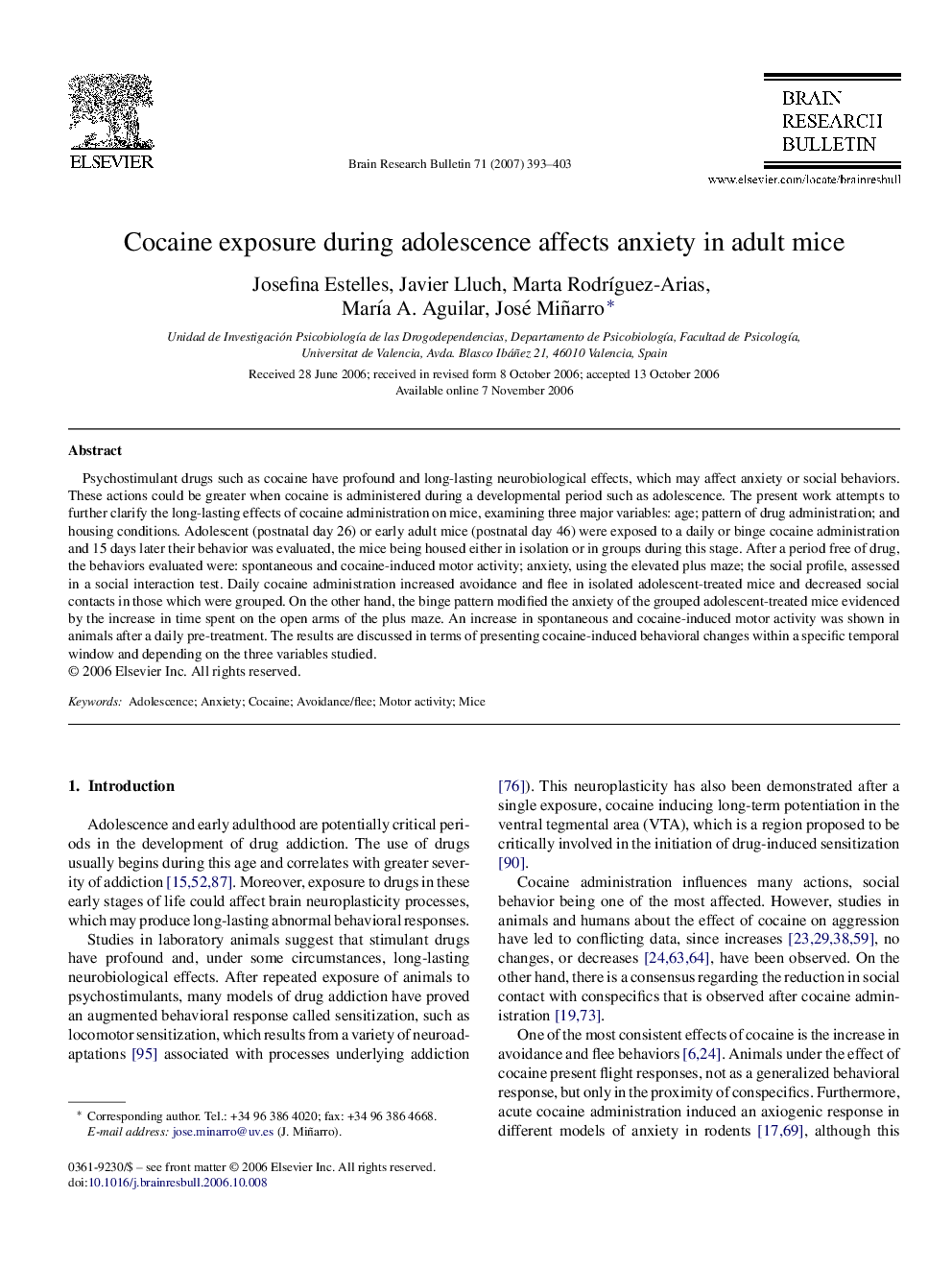| کد مقاله | کد نشریه | سال انتشار | مقاله انگلیسی | نسخه تمام متن |
|---|---|---|---|---|
| 4320050 | 1290845 | 2007 | 11 صفحه PDF | دانلود رایگان |

Psychostimulant drugs such as cocaine have profound and long-lasting neurobiological effects, which may affect anxiety or social behaviors. These actions could be greater when cocaine is administered during a developmental period such as adolescence. The present work attempts to further clarify the long-lasting effects of cocaine administration on mice, examining three major variables: age; pattern of drug administration; and housing conditions. Adolescent (postnatal day 26) or early adult mice (postnatal day 46) were exposed to a daily or binge cocaine administration and 15 days later their behavior was evaluated, the mice being housed either in isolation or in groups during this stage. After a period free of drug, the behaviors evaluated were: spontaneous and cocaine-induced motor activity; anxiety, using the elevated plus maze; the social profile, assessed in a social interaction test. Daily cocaine administration increased avoidance and flee in isolated adolescent-treated mice and decreased social contacts in those which were grouped. On the other hand, the binge pattern modified the anxiety of the grouped adolescent-treated mice evidenced by the increase in time spent on the open arms of the plus maze. An increase in spontaneous and cocaine-induced motor activity was shown in animals after a daily pre-treatment. The results are discussed in terms of presenting cocaine-induced behavioral changes within a specific temporal window and depending on the three variables studied.
Journal: Brain Research Bulletin - Volume 71, Issue 4, 9 January 2007, Pages 393–403